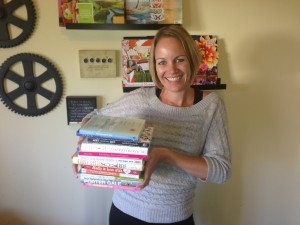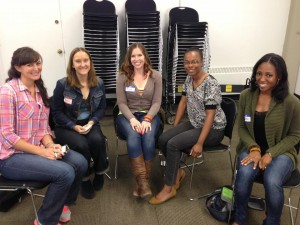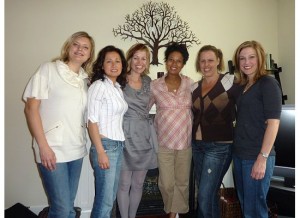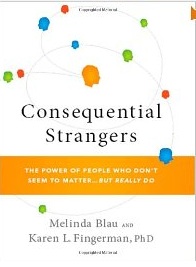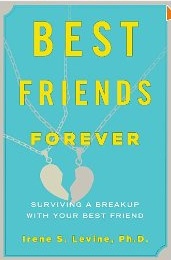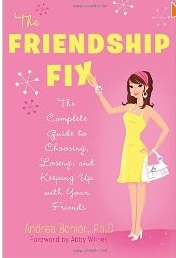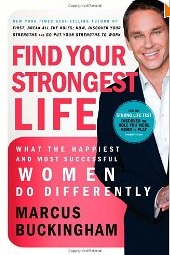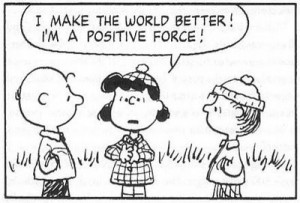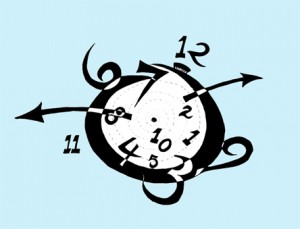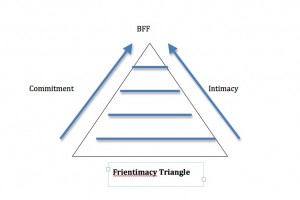Every so often I get a question in my inbox that triggers an idea for a blog that I would have never even thought up on my own; this week is one of those. (A sincere sorry to those who have written suggestions and I haven't yet gotten to them! I might still!) This email landed in my inbox on the very day I was compiling my own Christmas card list:
"I begrudgingly addressed *320* Christmas Cards over the weekend and I couldn't help but think that you probably have some advice / decision criteria for thinning it out to a more manageable amount. Clearly everyone has their own motivations and their "right" number -- all I know is that 320 is WAY TOO MUCH for us! Perhaps this is a topic for a blog post!?"
While totally wanting to honor the truth in that question that everyone will have different reasons and list sizes, I can at least offer up some principles and questions that might help us each make those decisions for ourselves.
How I Decide How Many Holiday Cards To Send?
I'll start with my short answer, and then give a longer answer that shows how it plays out for me.
In short, my rule is this: "Send the maximum number that still feels loving and expansive to my heart and body, stopping 10 short of the number that starts feeling heavy, guilt-ladden, or resource-depleting."
What that looks like is a bit like planning a wedding invitation list. You don't have to invite everyone-- a meaningful wedding can have 2 witnesses or 1000. We make the choice based primarily on 2 things: "What time/money/energy do I have this season?" and "Who do I want to give those limited gifts to?"
- What are my resources this season? In wedding language we would talk about a budget, how much time you have to make homemade centerpieces, and how much energy you want to put toward organizing this event in the midst of whatever else you have going on that year. In holiday card language we must ask the same questions. If your budget is tight this season, then you'll start reaching your limit sooner. If your time is plentiful, then you may get excited about a few weeks of crafting homemade cards in front of a fireplace. If your energy is waning then it may be that a short note of love being emailed out feels more do-able than coordinating that perfect holiday photo. What resources are you coming into this season with?
- Who are my priorities with the resources I have? In wedding language that would be like saying, "Okay, I have tons of money, now, would I rather pour that into a destination wedding for a few or an open-bar for everyone my parents have ever met?" Or, on the contrary, "I don't want to go into debt for this wedding, so I might need to either invite fewer people or decide to do snacks instead of a sit-down dinner." You know the process. In holiday card land, we need to do the same thing.
So finding that number between those two answers--where you stop short of feeling stress and angst-- is the goal.
And to state the obvious, every year is different for me. So it doesn't matter what I did last year; it matters what we can and want to do this year.
What Is the Purpose of Sending Holiday Cards?
In a day and age of Facebook, when it feels like everyone knows what's going on with your life, do we still really need to even send holiday cards?
I lean toward yes. I believe holiday cards are a gift of thoughtfulness to people; not just updating. I'd like to invite you to send them out not from a place focused on your life, but but from a place focused on someone feeling remembered and loved. And to do that, we don't need "amazing" lives or worrying about how to wow others.
I remember the year after my divorce feeling like I couldn't send out cards because all the photos you see are of smiling families or couples. But that misses the point. I wanted to say thank you to my friends for supporting me that year and communicate that I was still alive after a tough year. I remember one year not having much news to report and feeling lame, but again, that misses the point; I could still say "I'm wishing you the best new year" while I'm hoping the same for myself.
A challenge I hope some of you take on is that if you are typically the person who thinks they need to have this amazing card sent to a massive list as one of those things that makes you feel better about yourself-- this year consider just writing cards of love to 25 people instead. And, on the flip-side, if you're someone who never sends out cards because you mistakenly think you need to have this"perfect" family photo or some big news--this year consider doing the same-- just pick 25 people (or whatever number feels do-able and good!) to say "Happy holidays!"
Let go of feeling like you have to reveal the perfect photo, share the most amazing updates, or have a glamorous and seemingly great life-- and instead, see it as a chance to send love to others who undoubtedly feel the same way you do 90% of the time. Give love.
Who Makes the Cut and Stays on My List?
I actually think the 5 Circles of Friendship can serve as a useful resource as you make your decisions about who to send cards to.
One year, I decided to only send cards to my Confirmed Friends-- the women with whom I always want to feel close with even if we only talk once or twice a year, but opted to skip the friends I'm in constant touch with since I knew I'd be celebrating with them in other ways. One year, I included my Committed and Community Friends in that list and decided that what felt best to me was hand writing cards to all 20 of them to tell them what I loved about them. I obviously couldn't take on such an expression of love if my list that year included every friend in my life.
And every few years I think, "It's been a while since I've touched base with everyone-- I'm going to take it on!" and I look forward to a few evening of fires, hot drinks, and a big project. But even then, I go through my address book and ask myself:
- Who am I actually still in touch with? (There's no point in sending cards to people from my past unless they're also still part of my present! And no guilt in not staying in touch with the whole world--that's what Facebook can help with!)
- Who fits this years criteria? (Nah, she's more business, and this year I'm sending to personal friends. Or, no she's my daughter's friend, but not really mine.)
Going back to the wedding metaphor, if you only have x hours and x dollars then you can't invite everyone and you need to pick your top 20 or your top 50 or your top 100. And start on the Right-Side and work your way Left until the x number of cards you ordered are gone.
No wrong answer here. I don't for a second believe holiday cards have to be mutual. I send them to the people I love with no strings attached. They don't owe me one! And I assume the same for those who send me one. If they want to remove my name from next years list because I didn't send them one this year then so be it- my worth doesn't go up or down one iota based on how many cards I get.
This year, I encourage you to give as much love as you can in whatever ways it feels do-able. A card sent in stress is no gift at all. Send what you can with love. If it's only 6 cards-- then 6 it is. Our goal is let the people who matter to us know that they are loved-- however you do that is fine. Breathe deeply and let go of any obligation to love in any way that causes you more stress than joy.
And because I cannot, and will not, send holiday cards to you all-- "I wish you each a very meaningful holiday-- that you will receive what you most deeply need." xoxo



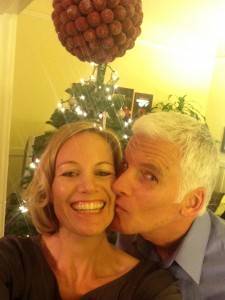

 I share the scene from the movie How Do You Know where Reese Witherspoon plays a character whose entire life is turned upside down when she is cut from the professional softball team that has been her entire career. She obligingly goes to see a therapist but before the session starts she talks herself out of it, willing herself to believe she doesn't need it. The psychiatrist, who knows nothing about the situation that his new client is struggling with, watches her walk out the door before any conversation occurs.And in what I think is the best scene in the movie, Reese sticks her head back in the doorway and basically challenges him to sum up his best therapeutic advice for life before she leaves. Without batting an eye he responds: "Figure out what you want and learn to ask for it."
I share the scene from the movie How Do You Know where Reese Witherspoon plays a character whose entire life is turned upside down when she is cut from the professional softball team that has been her entire career. She obligingly goes to see a therapist but before the session starts she talks herself out of it, willing herself to believe she doesn't need it. The psychiatrist, who knows nothing about the situation that his new client is struggling with, watches her walk out the door before any conversation occurs.And in what I think is the best scene in the movie, Reese sticks her head back in the doorway and basically challenges him to sum up his best therapeutic advice for life before she leaves. Without batting an eye he responds: "Figure out what you want and learn to ask for it."
